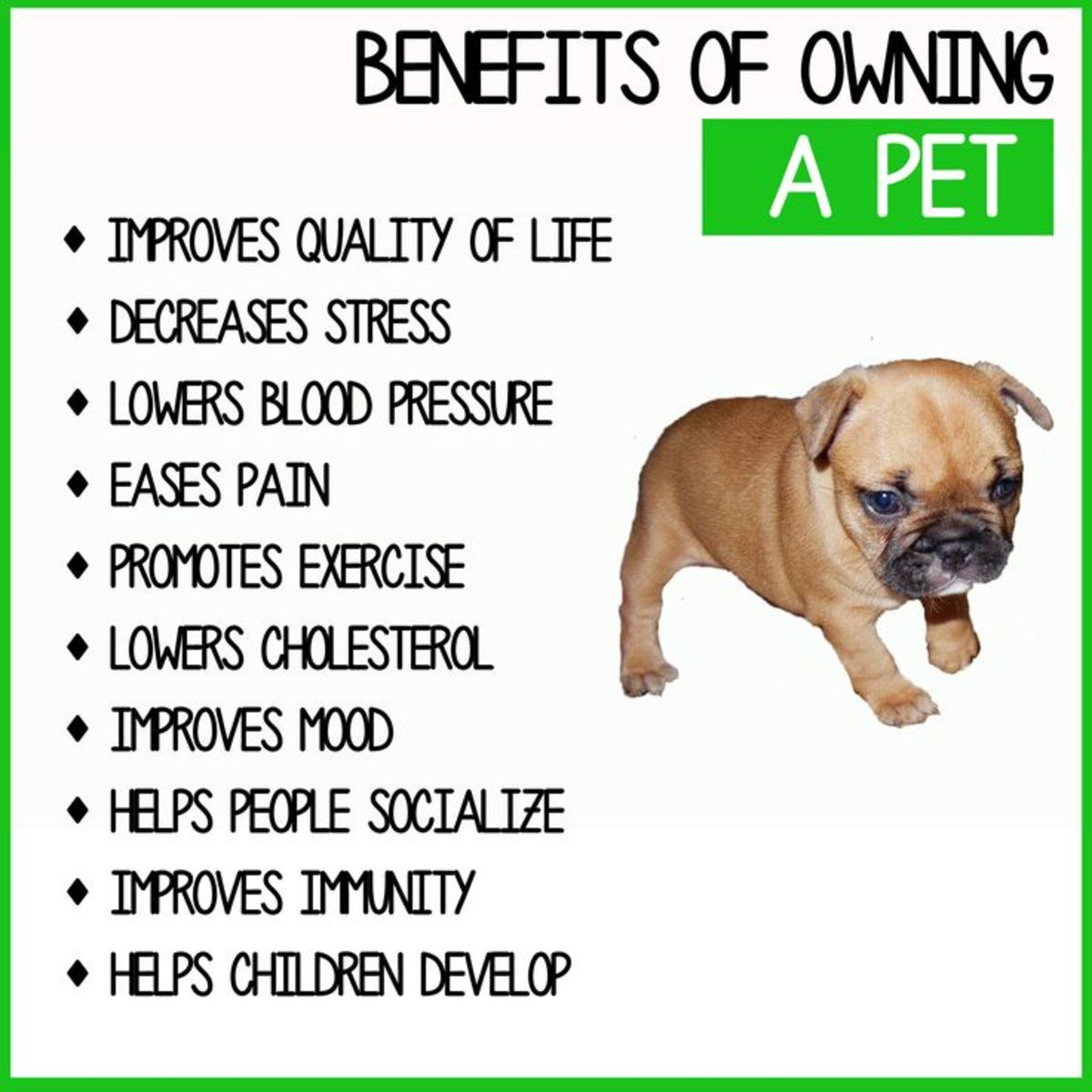Key Takeaways
Pets help seniors stay active, reducing the risk of heart disease and improving overall physical health.
Owning a pet can reduce feelings of loneliness and depression among older adults.
Interaction with pets can help maintain cognitive function and delay cognitive decline.
Pets serve as social facilitators, helping seniors make new friends and engage with their community.
Proper planning and support can make pet ownership manageable and enjoyable for seniors.
Social Benefits of Pets in Golden Years
Pets bring a unique kind of joy and companionship that can significantly enhance the lives of older adults. The bond between seniors and their pets is often profound, offering not just emotional support but also a range of social benefits. Let’s dive into how pets can positively impact the social lives of seniors.
“Pet Therapy and the Healing Power of …” from pethelpful.com and used with no modifications.
The Power of Bond with Pets
Pets provide a special kind of companionship that is particularly valuable for seniors. They offer unconditional love, which can be a tremendous source of comfort and emotional support. Many older adults find that their pets give them a sense of purpose and routine, which can be incredibly grounding.
For example, consider an elderly woman named Mary who adopted a small dog named Max. Every morning, Mary takes Max for a walk around the neighborhood. This simple routine not only helps Mary stay active but also gives her a reason to get out of bed each day. The bond she shares with Max provides her with a deep sense of fulfillment.
Dogs and Physical Activity
Exercise is crucial at any age, but it’s especially important for seniors. Dogs, in particular, can be excellent motivators for physical activity. Regular walks, playtime, and even simple activities like feeding and grooming can help keep older adults moving. For those looking to enjoy the outdoors with their pets, Fort Funston Dog Beach offers a great opportunity for both exercise and socialization.
Studies have shown that seniors who own dogs are more likely to engage in regular physical activity compared to those who don’t. This increased activity can lead to numerous health benefits, such as improved cardiovascular health, better mobility, and a lower risk of chronic diseases.
Cats and Cozy Companionship
While dogs are great for physical activity, cats can be wonderful companions for those who prefer a more relaxed lifestyle. Cats are generally low-maintenance pets that provide plenty of affection and companionship without requiring as much physical effort.
For instance, an elderly man named John found great comfort in his cat, Whiskers. John enjoys sitting in his favorite chair with Whiskers curled up on his lap. This simple act of companionship helps John feel less lonely and more content in his daily life.
Socialization Through Pet Ownership
Pets can also serve as social bridges, helping seniors connect with other people. Whether it’s through casual conversations during walks, visits to the vet, or participation in pet-related community events, pets can help break the ice and foster social interactions.
Many seniors find that having a pet makes it easier to strike up conversations with neighbors and strangers alike. This increased social interaction can lead to new friendships and a stronger sense of community. For more information, check out the benefits of welcoming a pet companion in your golden years.
Reduction in Anxiety and Stress
Pets have a calming effect that can help reduce anxiety and stress levels. The simple act of petting a dog or cat can release endorphins, which are natural mood lifters. This can be particularly beneficial for seniors who may be dealing with the stresses of aging or health issues.
Moreover, pets can provide a sense of security and stability. Knowing that their pet relies on them can give older adults a sense of responsibility and purpose, which can be incredibly reassuring.
“Pets make us feel needed and valued. Older adults having contact with dogs reported reduced levels of loneliness and improved mental functioning.”
Social Impacts of Pets
Pets do more than just provide companionship; they can also have a significant impact on social dynamics and community engagement for seniors. By acting as social facilitators, pets help older adults connect with others in meaningful ways.
Pets as Social Facilitators
Owning a pet often leads to increased social interactions. When you walk a dog, for instance, you’re likely to encounter other dog owners or animal lovers. These interactions can spark conversations and lead to new friendships.
Moreover, pets can serve as a common interest that brings people together. Whether it’s sharing pet care tips or discussing the antics of your furry friends, pets provide a natural icebreaker that can make socializing easier.
Community Building
Pets can play a crucial role in building a sense of community among older adults. Pet-friendly community activities, such as dog parks, pet parades, and pet therapy sessions, offer opportunities for seniors to engage with their neighbors and participate in group events.
For example, many communities host “Yappy Hours” or pet-friendly social gatherings where pet owners can meet and mingle. These events not only provide a fun outing for pets but also foster a sense of belonging and community among participants.
Interaction with Neighbors
Having a pet can make it easier for seniors to interact with their neighbors. Simple activities like walking a dog or playing with a cat in the yard can lead to casual conversations and friendly interactions with those living nearby.
These interactions can help reduce feelings of isolation and create a supportive network of neighbors who look out for each other. In many cases, neighbors may even offer to help with pet care, further strengthening these social bonds.
Improved Communication Skills
Engaging in conversations about pets can help improve communication skills, particularly for older adults who may be less socially active. Discussing pet-related topics can boost confidence and make it easier to engage in other social interactions.
For example, an elderly woman named Susan found that talking about her cat, Bella, helped her feel more comfortable striking up conversations with others. Over time, Susan became more outgoing and confident in her social interactions, thanks to the common ground provided by her beloved pet. For tips on how to socialize a new rescue cat, check out this guide.
Engagement in Conversations
Pets can serve as a focal point for engaging conversations. Whether it’s sharing funny stories about your pet’s antics or discussing pet care routines, these conversations can be both enjoyable and enriching.
For instance, seniors attending a community center may find that talking about their pets helps break the ice and leads to more meaningful interactions. These conversations can provide a sense of connection and camaraderie, making social gatherings more enjoyable.
Bonding Over Shared Interests
Having a pet can help seniors bond over shared interests. Whether it’s a love for animals, a passion for pet care, or a mutual appreciation for the companionship pets provide, these shared interests can form the basis for lasting friendships. For example, socialization benefits can be experienced by visiting pet-friendly places together.
For example, two elderly men, Tom and Jerry, discovered their shared love for dogs at a local dog park. Their mutual interest led to regular meet-ups, where they not only enjoyed watching their dogs play but also developed a strong friendship based on their common passion.
How Pet Ownership Impacts the Health of Seniors
Beyond the social benefits, pet ownership can have a profound impact on the physical and mental health of older adults. From increased physical activity to improved emotional well-being, pets can play a vital role in enhancing the overall health of seniors. For example, dog socialization benefits can contribute significantly to the well-being of both pets and their owners.
Physical Health Benefits
Pets, especially dogs, can help seniors stay active and maintain better physical health. Regular walks, playtime, and even the routine care of a pet can contribute to a more active lifestyle.
Increased Physical Activity
One of the most significant health benefits of pet ownership is the increase in physical activity. Dogs, in particular, require regular walks, which can help seniors stay active and fit.
For example, a study found that seniors who walked their dogs regularly were more likely to meet the recommended levels of physical activity. This increased activity can lead to numerous health benefits, such as improved mobility, better cardiovascular health, and a lower risk of chronic diseases.
Improved Cardiovascular Health
Regular physical activity, such as walking a dog, can have a positive impact on cardiovascular health. Studies have shown that pet owners, particularly dog owners, tend to have lower blood pressure, reduced cholesterol levels, and a lower risk of heart disease.
For instance, an elderly man named George found that his daily walks with his dog, Buddy, helped him maintain a healthy blood pressure and improve his overall heart health. This simple routine not only benefited George’s physical health but also provided a sense of companionship and joy.
Mental Health and Emotional Well-being
Pets can also have a profound impact on the mental health and emotional well-being of seniors. The companionship and unconditional love provided by pets can help reduce feelings of loneliness, depression, and anxiety.
Reduction in Depression
Many seniors experience feelings of depression, particularly those who live alone or have lost a spouse. Pets can provide a sense of purpose and routine, which can help alleviate these feelings.
For example, an elderly woman named Margaret found that adopting a cat, Whiskers, helped her cope with the loss of her husband. Whiskers provided companionship and comfort, helping Margaret feel less lonely and more hopeful about the future.
Decreased Feelings of Loneliness
Loneliness is a common issue among older adults, but pets can help mitigate these feelings. The constant presence of a pet provides companionship and a sense of connection, reducing the sense of isolation that many seniors experience. For more information on the socialization benefits of pets, check out this guide.
For instance, an elderly man named Paul found that his dog, Rex, helped him feel less lonely after his children moved away. Rex’s companionship provided Paul with a sense of comfort and connection, making his days feel less empty.
Cognitive Benefits
Pets can also have a positive impact on cognitive function. Interacting with pets can help keep the mind active and engaged, which can be particularly beneficial for seniors.
Maintaining Cognitive Function
Studies have shown that pet ownership can help maintain cognitive function and delay cognitive decline. The routine care of a pet, such as feeding, grooming, and playing, can help keep the mind sharp and engaged.
For example, an elderly woman named Alice found that caring for her dog, Max, helped her stay mentally active. The routine tasks and interactions with Max provided mental stimulation, helping Alice maintain her cognitive function and delay the onset of cognitive decline.
Engaging the Mind and Memory
Pets can also help engage the mind and memory. Remembering to feed, groom, and care for a pet can provide mental stimulation and help keep the mind active.
For instance, an elderly man named Robert found that caring for his cat, Bella, helped him stay mentally sharp. The routine tasks and interactions with Bella provided mental stimulation, helping Robert maintain his cognitive function and keep his mind active.
Practical Considerations for Pet Care
While the benefits of pet ownership are numerous, it’s important for seniors to consider the practical aspects of pet care. Proper planning and support can make pet ownership manageable and enjoyable for older adults.
Physical Limitations
Consider the physical demands of pet care, such as walking, feeding, and grooming.
Choose a pet that matches your physical abilities and lifestyle.
Seek assistance from family, friends, or community resources if needed.
It’s important to choose a pet that matches your physical abilities and lifestyle. For example, if you have mobility issues, a low-maintenance pet like a cat or a small dog may be a better fit than a high-energy breed that requires frequent walks. Additionally, you can learn about how to socialize a new rescue cat to ensure a smooth transition into your home.
Financial and Logistical Planning
Pet ownership comes with financial and logistical responsibilities. It’s important to plan for the costs of pet care, such as food, grooming, and veterinary expenses.
For example, an elderly couple named Tom and Mary created a budget to cover the costs of caring for their dog, Max. They also made arrangements with a neighbor to help with walks and pet care when needed, ensuring that Max’s needs were met even if they faced health challenges. For more information on welcoming a pet companion in your golden years, visit this resource.
Support Systems for Pet Care
Having a support system in place can make pet ownership more manageable. This may include family, friends, or community resources that can assist with pet care when needed.
For instance, an elderly woman named Jane found support through a local pet care service that provided assistance with walks and grooming. This support allowed Jane to enjoy the companionship of her dog, Bella, without feeling overwhelmed by the responsibilities of pet care.
Overcoming Challenges to Pet Ownership as a Senior
While pet ownership offers numerous benefits, it can also present challenges for seniors. Addressing these challenges proactively can help ensure a positive and rewarding experience.
Addressing Physical Limitations
Physical limitations can make pet care challenging, but there are ways to address these issues and ensure that both the senior and the pet are well cared for.
For example, seniors with mobility issues may benefit from choosing a low-maintenance pet or seeking assistance with pet care tasks.
Utilizing Pet Assistive Devices
Pet assistive devices, such as automatic feeders, pet ramps, and mobility aids, can make pet care more manageable for seniors with physical limitations. For example, mobility aids can help seniors take their pets for walks, ensuring both the pet and owner stay active and healthy.
For instance, an elderly man named John found that using an automatic feeder for his cat, Whiskers, made it easier to manage feeding times. This simple device helped John provide consistent care for Whiskers without straining his physical abilities.
Hiring Help for Pet Care
Hiring help for pet care can be a practical solution for seniors who need assistance with tasks like walking, grooming, and feeding. For those interested in learning more about the socialization benefits of pet ownership, there are many resources available.
For example, an elderly woman named Susan hired a local pet care service to help with walks and grooming for her dog, Max. This support allowed Susan to enjoy the companionship of Max without feeling overwhelmed by the responsibilities of pet care.
“Pets can make us feel needed and valued. Older adults having contact with dogs reported reduced levels of loneliness and improved mental functioning.”
Financial Planning for Pet Care
Financial planning is essential for managing the costs of pet care. This includes budgeting for expenses like food, grooming, and veterinary care.
Budgeting for Pet Expenses
Creating a budget for pet expenses can help seniors manage the financial responsibilities of pet ownership. This may include setting aside funds for routine care, as well as unexpected expenses like medical emergencies.
For example, an elderly couple named Tom and Mary created a budget to cover the costs of caring for their dog, Max. They also set aside an emergency fund for unexpected veterinary expenses, ensuring that Max’s needs would be met even in unforeseen circumstances.
Utilizing Pet Assistive Devices
Pet assistive devices, such as automatic feeders, pet ramps, and mobility aids, can make pet care more manageable for seniors with physical limitations. For instance, an elderly man named John found that using an automatic feeder for his cat, Whiskers, made it easier to manage feeding times. This simple device helped John provide consistent care for Whiskers without straining his physical abilities.
Hiring Help for Pet Care
Hiring help for pet care can be a practical solution for seniors who need assistance with tasks like walking, grooming, and feeding. For example, an elderly woman named Susan hired a local pet care service to help with walks and grooming for her dog, Max. This support allowed Susan to enjoy the companionship of Max without feeling overwhelmed by the responsibilities of pet care. For more information on the benefits of socializing pets, check out this guide on socialization benefits.
Financial Planning for Pet Care
Financial planning is essential for managing the costs of pet care. This includes budgeting for expenses like food, grooming, and veterinary care. Creating a budget for pet expenses can help seniors manage the financial responsibilities of pet ownership. This may include setting aside funds for routine care, as well as unexpected expenses like medical emergencies.
Budgeting for Pet Expenses
For example, an elderly couple named Tom and Mary created a budget to cover the costs of caring for their dog, Max. They also set aside an emergency fund for unexpected veterinary expenses, ensuring that Max’s needs would be met even in unforeseen circumstances.
Finding Community Resources
Local animal shelters and rescue organizations
Community pet care programs
Senior centers offering pet-related services
Online forums and support groups
These resources can provide valuable support and assistance, making pet ownership more manageable for seniors. For instance, many communities offer pet care programs that provide services like dog walking, grooming, and veterinary care at reduced costs for older adults.
Additionally, online forums and support groups can offer advice, tips, and emotional support for seniors navigating the challenges of pet ownership. By leveraging these resources, seniors can ensure that their pets receive the care they need without feeling overwhelmed.
Alternative Ways to Interact with Pets
For seniors who may not be able to own a pet, there are still plenty of ways to enjoy the benefits of interacting with animals. Pet therapy programs and volunteering at animal shelters are excellent alternatives that provide the joys of pet companionship without the full responsibility of ownership.
Pet Therapy Programs
Pet therapy programs bring trained therapy animals to visit seniors in various settings, such as nursing homes, hospitals, and community centers. These visits can provide significant emotional and mental health benefits, including reduced stress, improved mood, and increased social interaction.
For example, a senior named Alice participated in a pet therapy program where therapy dogs visited her nursing home weekly. Alice found that spending time with the therapy dogs lifted her spirits and provided a much-needed sense of comfort and joy.
Volunteering at Animal Shelters
Volunteering at animal shelters is another excellent way for seniors to interact with pets without the full-time responsibility of ownership. Shelters often need volunteers to help with tasks like walking dogs, socializing cats, and assisting with adoption events. For more information on how pets can enhance your golden years, check out this article on welcoming a pet companion.
For instance, an elderly man named Robert volunteered at his local animal shelter, where he spent time playing with the cats and helping potential adopters. This volunteer work provided Robert with a sense of purpose and allowed him to enjoy the companionship of animals regularly. For more information on how pets can benefit older adults, read about welcoming a pet companion in your golden years.
Conclusion and Key Insights
In conclusion, pet ownership offers a multitude of social and health benefits for seniors, including increased physical activity, improved emotional well-being, and enhanced social interactions. By addressing the practical considerations and challenges of pet care, seniors can enjoy a fulfilling and rewarding experience with their pets.
Final Thoughts on the Social Benefits of Pets
Pets provide invaluable companionship and emotional support, helping seniors feel less lonely and more connected. The social interactions facilitated by pets can lead to new friendships and a stronger sense of community. For more information on welcoming a pet companion, check out this resource on welcoming a pet companion in your golden years.
Additionally, the physical and mental health benefits of pet ownership can significantly enhance the overall quality of life for older adults.
Encouraging Responsible Pet Ownership
Responsible pet ownership is crucial for ensuring that both the senior and the pet enjoy a positive and healthy relationship. This includes choosing the right pet, planning for the costs of pet care, and seeking support when needed.
By following these guidelines, seniors can create a safe and loving environment for their pets, leading to a mutually rewarding companionship.
Choose a pet that matches your physical abilities and lifestyle.
Plan for the financial responsibilities of pet care.
Seek assistance from family, friends, or community resources when needed.
Consider alternative ways to interact with pets, such as pet therapy programs or volunteering at animal shelters.
These steps can help ensure a positive and enjoyable pet ownership experience for seniors.
The Overall Impact on Quality of Life
The overall impact of pet ownership on the quality of life for seniors is profound. Pets provide companionship, emotional support, and numerous health benefits, making them an invaluable addition to the lives of older adults. By addressing the challenges and planning for the responsibilities of pet care, seniors can enjoy the many rewards of having a pet in their golden years.
Frequently Asked Questions
Here are some common questions that seniors may have about pet ownership:
What pets are easiest for older adults to care for?
Small dogs, cats, and even certain small animals like birds or fish can be easier for older adults to care for. These pets typically require less physical activity and maintenance compared to larger, more high-energy animals.
For example, a small dog like a Chihuahua or a cat can provide companionship and affection without the need for long walks or extensive grooming.
How can I make pet care more manageable as I age?
There are several ways to make pet care more manageable, including using pet assistive devices, hiring help for pet care tasks, and seeking support from family, friends, or community resources.
For instance, using an automatic feeder or hiring a dog walker can help ensure that your pet’s needs are met without placing too much strain on your physical abilities.
Are there any health risks associated with pet ownership?
While pet ownership offers many benefits, there are some health risks to consider, such as allergies, the risk of falls, and zoonotic diseases (diseases that can be transmitted from animals to humans).
It’s important to choose a pet that matches your health and lifestyle and to take necessary precautions, such as regular veterinary care and proper hygiene practices.
What are some affordable ways to own a pet?
Adopting a pet from a shelter or rescue organization can be a more affordable option compared to purchasing from a breeder. Additionally, many communities offer low-cost veterinary services and pet care programs for seniors.
For example, some animal shelters provide discounted adoption fees for seniors, making it more affordable to bring a pet into your home.
How can I find support if I need it to care fully for my pet?
There are various resources available to help seniors with pet care, including local animal shelters, community pet care programs, senior centers, and online support groups.
For instance, many communities offer pet care programs that provide services like dog walking, grooming, and veterinary care at reduced costs for older adults. Additionally, online forums and support groups can offer advice, tips, and emotional support for seniors navigating the challenges of pet ownership.






